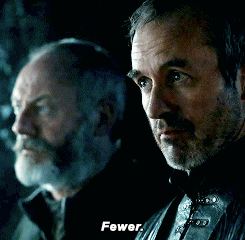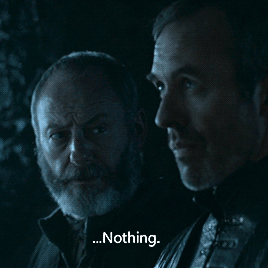|
|
 Originally Posted by MadMojoMonkey

I guess I just can't get on the same page with either of you on the issue of how to characterize taxation.
I don't see it as an inherently bad process.
It seems like the bottom line is that taxation is voluntary in the sense that the government is composed of citizens. So all tax laws come from the citizens. Once it's a law, then it's not voluntary to follow or not.
I obviously agree that it is illegal to avoid paying taxes. Yes, you face fines, imprisonment, whatever legal ramifications whenever you break the law.
The disagreement seems to be on the origin of the laws and whether it is self-government.
***
Whether or not all taxes are good is not in question. Just whether taxation, as a process, is good.
I don't think we're going to meet each other on this perspective. So we should move on.
I'm not sure I see how it's that important a question to agree on, anyway.
Personally, I'm a bit exhausted with the conversation and I don't even know what questions to ask.
It's okay to take time away. These can be exhausting. For when you return, I'd like to respond to this:
Whether or not all taxes are good is not in question. Just whether taxation, as a process, is good.
Let's use analogy. Let's turn McDonald's into a tax regime:
Every week, you write a check to McDonald's based on your income. If you do not write this check, McDonald's comes to your house with a force far stronger than anybody else has and either coerces you to write the check or puts you in prison. Every week, McDonald's distributes food to its taxpayers. It choose how to based off its revenues that it receives from taxes. There are no consumers, only people who stand in line and get their food stipend. There is no menu for individuals to choose from, because we vote. After much deliberation, the people who choose to partake in the voting process set up all sorts of rules about how the food is distributed. The poor get $5 of food for every $1 they are taxed, the rich get $1 of food for every $5 they are taxed. The fat are given 40% of their food in salads, 40% in burgers, and 20% in fries. The thin are given 60% in burgers, 30% in fries, and 10% in salads. Food can be exchanged for stamps, and those stamps can be exchanged for different food.
The rich don't like this setup. The fat don't like it. The thin and poor love it. Those who make a lot of stamp exchanges are split. The rich and fat make up a coalition of 43%, thin and poor make up 43%, and the stamp exchangers make up 14%. The rich and fat know they will never get along with the thin and poor, so in order to change the laws, they lobby the stamp exchangers. They construct a coalition of the 43% rich and fat with 8% from the stamp exchangers for a total of 51% of all voters. The deal they strike reduces the amount of salads distributed to the fat while increasing the burgers, reduces the amount of dollars taxed of the rich, and give a handful of better exchange rates for the 8% that made up the heavy stamp users.
The thin and poor are livid. Some of the other stamp exchangers are also livid. They attempt to create a new coalition to undo the changes. The 43% thin and poor are solid, 6% of the stamp exchangers are solid, and they just need a small portion of the 8% stamp exchangers to hit 51%. But wait, the 8% got deals they really like. The fat and rich gave them all sorts of concessions in order to enter the previous coalition, and there's little this new coalition can offer them to change their minds. The new coalition changes strategy: it tries to break up the fat and rich group. The campaigns work. A chunk of the fat group, making up 5% of the total vote are convinced that they should go back to more salads. The new coalition is complete and they're about to overturn the rules created by the previous coalition. But just before they can do that, the stamp exchangers who got a dynamite deal in the rule change are LIVID and they spend gangbusters to break up the thin and poor group. All they need is to just dent it, and the new coalition can't reach 51%.
I'll stop here because you get the picture. If this was a college course, it would be called Political and Policy Operations of Tax Regimes and Democratic Votes 101. The process creates a situation where nobody gets what they want except for tiny groups of special interests who get exactly what they want on specific items. The claim that democracy is dictatorship of the 51% is not entirely correct because what really happens is the small 1-2% groups on the margin are necessary for any coalition of 51%. This not only creates oppression of the minority, but also creates oppression of the majority. If 49% of people hate a new policy while 47% love a different policy but they can only get that policy by bending over backwards for the small remaining 4% in order to get their coalition, you're left in a compromise where a bunch of rules are passed at the same time, with many rules that up to 90% of the voters may not like.
Let's change gears a little here. What kind of food industry would this McDonald's create? Well, it would likely become the only or majority distributor of food since most people would not choose to buy food from any businesses since they already pay in taxes to McDonald's for food. Every fast-food joint would disappear, and all we'd be left with are likely high end boutique restaurants with rich clientele.* The dynamism of food compared to today would be easily cut down to degrees nobody would want to admit. The variety and quality would sink to the Marianas Trench. No more small Teriyaki, BBQ, delis, or Mexican joints because low revenue businesses couldn't compete with the tax regime. Food is never fast anymore because the lines at McDonald's are ridiculous. McDonald's no longer has to please its customers since it receives their funds by mandate instead of choice, so their quality and quantity of service and products drop dramatically.
Again, I'll stop here. Please absorb this information. At every step of the way in turning McDonald's into a food source with tax power, the entire food system gets worse and more complex. This spreads to more than just food though, as I explained in the asterisk below, it indirectly creates things like class disparity. Every dynamic I listed is super standard in our current bureaucracies and landscape of any industries with heavy intervention from the government. This can be contrasted to the areas that most people currently believe the government should be involved, and we can see that those things are likely just as bad now as our food industry would be if McDonald's was a tax regime.
You personally say you love the great infrastructure and amenities we get from government. But I'm telling you, those are nothing compared to how great they would be if the government did not intervene. We know this to be true because we know how the markets function and how governments function. The foundational difference between the two is that one operates on taxes and the other operates on consumption choice. That small difference is as big as the difference between a planet and an atom.
*This is a main way we get disparities between classes or various groups. Tax regimes with laws based on the democratic vote are more easily contorted by those with lots of a resource, be they wealth, a group identity, or a rent-seeking interest. How ironic is it that the government that we all try to use to eliminate such great disparities is itself the cause of them?
|





 Reply With Quote
Reply With Quote















 the internet
the internet 